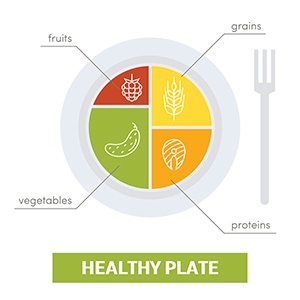 Chronic conditions including high blood pressure, high cholesterol, diabetes, and obesity account for the majority of America’s medical costs. A common link between these conditions is poor nutrition. Daily nutrition can directly affect day to day lives, including energy, activity, and stress.
Chronic conditions including high blood pressure, high cholesterol, diabetes, and obesity account for the majority of America’s medical costs. A common link between these conditions is poor nutrition. Daily nutrition can directly affect day to day lives, including energy, activity, and stress.
March is National Nutrition Month and an opportunity to educate ourselves on the importance of making informed food choices and developing sound eating and physical activity habits. What used to be the Food Pyramid has been replaced with MyPlate. MyPlate illustrates the five food groups that are the building blocks for a healthy diet using a place setting. Below are suggested servings by food group:
- Vegetables - Make half your plate fruits and vegetables, vary your veggies
- Fruits - Make half your plate fruits and vegetables, focus on whole fruits
- Grains - Make half your grains whole grains
- Dairy - Move to low-fat or fat-free milk or yogurt
- Protein - Vary your protein routine
Portion Size vs Serving Size
A serving is the amount of food recommended in consumer education materials such as MyPlate. A portion is the amount of a food you choose to eat at any one time. This may be more or less than a serving.
Serving size comparisons:
- 1 teaspoon of margarine is the size of one dice
- 3 ounces of meat is the size of a deck of cards
- 1 cup of pasta is the size of a baseball
- 1½ ounces of cheese is the size of four stacked dice
- ½ cup of fresh fruit is the size of a tennis ball
Tracking Food
Tracking your meals is a great way to increase your awareness of what, how much, and when you are eating. This can help you identify areas to boost your nutrient intake, curb mindless munching, and help you lose weight. Try using a food-tracking app if you find crunching numbers before eating too exhausting.
Water
Water helps maintain the balance of body fluids. The body is composed of about 60% water. The functions of these bodily fluids include: digestion, absorption, circulation, creation of saliva, transportation of nutrients, and maintenance of body temperature.
Drinking plenty of water helps:
- Increase Energy & Relieve Fatigue - Since your brain is mostly water, drinking it helps you think, focus, concentrate better, and be more alert. It also boosts your energy levels!
- Promote Weight Loss - Removes by-products of fat, reduces eating intake when consumed prior to meals, reduces hunger as an appetite suppressant, raises your metabolism, and has zero calories!
- Flush Out Toxins - Removes waste through sweat and urination. This reduces the risk of kidney stones and urinary tract infections.
- Improve Skin Complexion - Moisturizes skin, keeps it fresh, soft, glowing, and smooth. Helps get rid of wrinkles.
- Maintain Regularity - Aids in digestion as water is essential to digest your food and prevent constipation.
- Boost Immune System - Drinking plenty of water helps fight against flu, cancer, and other ailments like heart attacks.
- Remedy Headaches - Helps relieve and prevent headaches which are commonly caused by dehydration.
- Prevent Cramps & Sprains - Proper hydration helps keep joints lubricated and muscles more elastic to reduce joint pain.
- Put You In A Good Mood - When the body is functioning at its best, people feel great and happy!
Sleep
According to the National Sleep Foundation, healthy sleep habits are directly related to how we eat and exercise. This makes sleep a critical factor in your health, weight, and energy level. Seven to nine hours of sleep is recommended for most adults. If your sleep pattern is thrown off, your nutritional and exercise habits could go by the wayside as well. Studies have found that sleep-deprived individuals had an imbalance of hormones associated with appetite, making them eat more. Lack of sleep can lead to unhealthy food cravings for calorie-rich and carb-rich foods, and lead to weight gain.
What’s the Risk?
Changing your current lifestyle to be healthier can be hard. Improve your health now by making one small change today, like drinking more water, eating breakfast, or going to bed 20 minute earlier. Over time, making small changes will lead to transforming your lifestyle. Consider changes that reflect your personal preferences, culture, and traditions. Each change is a win that will help you build your healthy eating style.




